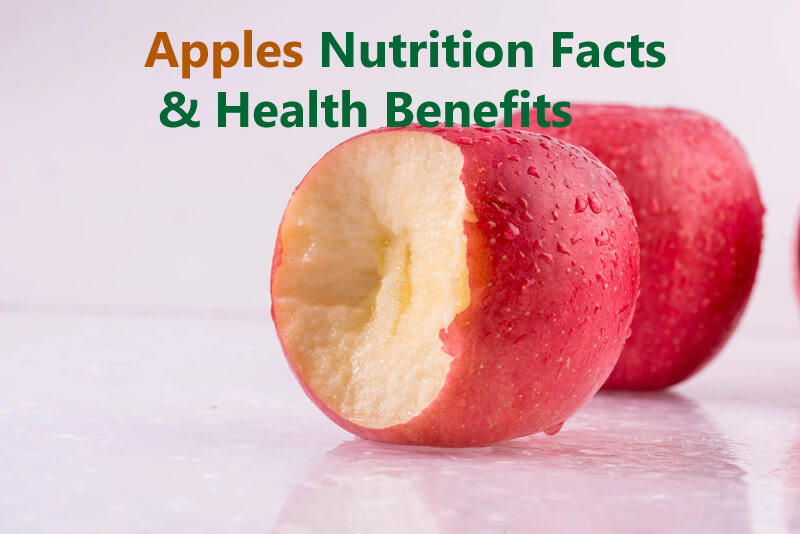Apple Nutrition Facts & Health Benefits
Apples is rich in sugar, acid, aromatic alcohol and pectin substances, and contains vitamin B, vitamin C and calcium, phosphorus, potassium, iron and other brain necessary nutrients.
Apples contain a variety of phytochemicals, including quercetin, catechin, phloridzin, and chlorogenic acid, all of which are strong antioxidants.

When you compare apples to other commonly consumed fruits, they have the second highest antioxidant activity, second highest total concentration of phenolic compounds, and the highest portion of free phenolics.
Apple Nutrition Facts Label
6 Health Benefits of Apple
So what’s in an apple? A bonus for your heart: the pectin and vitamin C in apples help keep cholesterol levels stable. Eating two apples per day resulted in an average drop in cholesterol levels of up to 10 percent.
Pectin can also increase short-chain fatty acids (SCFAs) that serve as the food for our good bacteria. These SCFAs also help maintain a low pH in the intestine, which is important to inhibit the growth of bad bacteria and also to digest and break down foods. Pectin also protects us from the ravages of pollution, binding to heavy metals, such as lead or mercury, in the body and carrying them safely out. Pectin can strengthen the gut lining, which is important to limit the passage of harmful substances into the bloodstream leading to inflammatory processes. It can also provide food that good gut bacteria need to proliferate and flourish.
The malic and tartaric acids in apples help to neutralize the acid by-products of indigestion and help your body cope with excess protein or rich, fatty foods.
Apple is great detoxifiers, and people suffering from arthritis, rheumatism, or gout should eat raw apples regularly.
A mono-fast on apples alone, for a day or two, can be warmly recommended for people suffering from food poisoning or inflammatory bowel conditions.
Apples are also a fantastic source of fiber, both soluble and insoluble: one large apple can provide 10 percent of your daily recommended fiber intake. And we now know that highfiber foods can be useful in preventing heart disease.